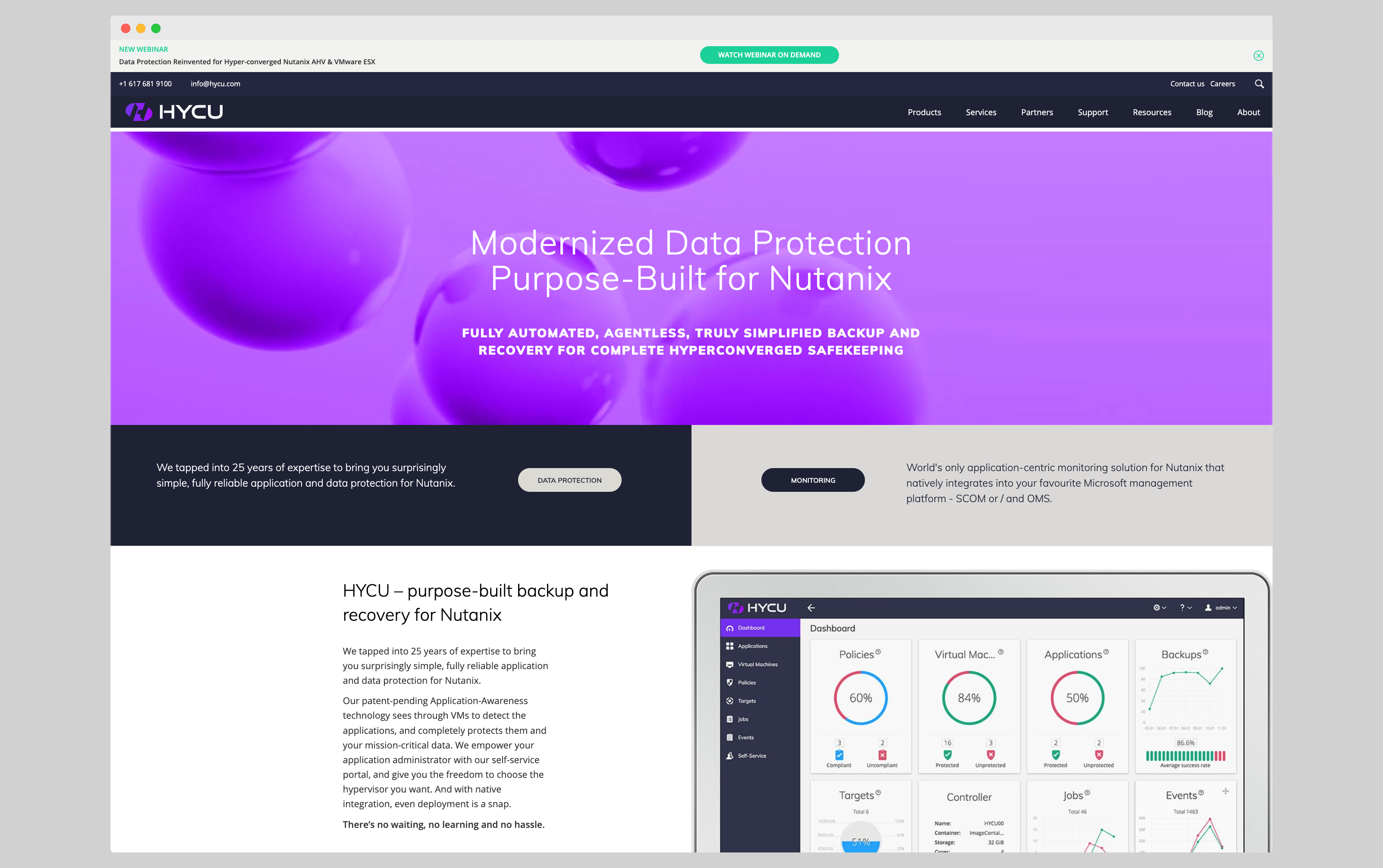How Simon Taylor Built a Data Protection as a Service Business To $4M ARR
HYCU is a Data Protection as a Service (DPaas) company for on-premise, cloud, and SaaS applications.
Who is Simon Taylor?
Simon Taylor serves as the CEO and co-founder of HYCU, a data protection service catering to on-premise, cloud, and SaaS applications.
He is a seasoned entrepreneur with extensive experience in developing go-to-market strategies, product marketing, and managing channel sales for high-growth tech companies.
Before establishing HYCU, Simon was associated with Comtrade Software, an infrastructure monitoring business that was later acquired by Citrix.
He holds a BSc in Operations Technology from Northeastern University and an MBA from Instituto de Empresa (Madrid)

What problem does HYCU solve?
Entrepreneurs, creators, and consumers are concerned about the security of their data. They need a unified, effective, and user-friendly data protection solution.
How did Simon come up with the idea for HYCU?
In 2016, Simon met Goran, an old acquaintance, and they discussed the outdated state of data protection solutions. Initially uninterested, Simon became inspired by the idea of creating a modern, efficient data protection platform.
We decided that we had to build a platform that was gonna provide an equivalent level of data protection support across on-premises, public Cloud, and SaaS services. And we've spent the last five years doing that. — Simon (Source)
How did Simon build the initial version of HYCU?
The co-founders analyzed the existing solutions and took time to understand the technology and infrastructure. They then built a pro platform that would provide an equivalent level of data protection support across on-premises, public Cloud, and SaaS services.

What was the growth strategy for HYCU and how did they scale?
HYCU focused on the following growth channels:
- HYCU co-founders leveraged existing networks to build trust and acquire their initial customers.
- Organic content on social media: Simon identified where and how his customers seek information and focused on providing valuable knowledge and positioning himself as an industry leader, which built trust and drew customers organically without overtly pitching his products.
- Webinars: Simon invited experts to provide genuine guidance and lessons. He emphasized adding value over selling, attracting large audiences, and building trust, ultimately leading to a loyal customer base and long-term success.
HYCU inviting their audience to a marketing event to learn more about their products and offerings
What were the biggest lessons learned from building HYCU?
But I think for me, the biggest lesson learned. Is that when you stay true to providing customer value, you win. — Simon (Source)
Discover Similar Business Ideas Like HYCU
A passionate computer-coder entrepreneur shares the story behind his successful PDFShift business which after a year and a half generates $3.2k of monthly revenues with the focus now on growth.
QR TIGER, a QR code management platform that provides static and dynamic QR codes, has developed a strong position in the market, with a profitable business model and consistent growth through customer-centric and organic marketing strategies.
More about HYCU:
Who is the owner of HYCU?
Simon Taylor is the founder of HYCU.
When did Simon Taylor start HYCU?
2018
What is Simon Taylor's net worth?
Simon Taylor's business makes an average of $358K/month.
How much money has Simon Taylor made from HYCU?
Simon Taylor started the business in 2018, and currently makes an average of $4.3M/year.

Download the report and join our email newsletter packed with business ideas and money-making opportunities, backed by real-life case studies.

Download the report and join our email newsletter packed with business ideas and money-making opportunities, backed by real-life case studies.

Download the report and join our email newsletter packed with business ideas and money-making opportunities, backed by real-life case studies.

Download the report and join our email newsletter packed with business ideas and money-making opportunities, backed by real-life case studies.

Download the report and join our email newsletter packed with business ideas and money-making opportunities, backed by real-life case studies.

Download the report and join our email newsletter packed with business ideas and money-making opportunities, backed by real-life case studies.

Download the report and join our email newsletter packed with business ideas and money-making opportunities, backed by real-life case studies.

Download the report and join our email newsletter packed with business ideas and money-making opportunities, backed by real-life case studies.


